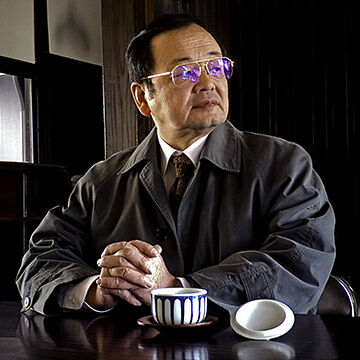Leadership
How the Last Japanese Samurai Handles Conflict
A Personal Perspective: We have much to learn from the Japanese Samurai.
Posted October 21, 2022 Reviewed by Abigail Fagan

On a trip to Shonai, Japan, I was fortunate to score an interview with the last of the Samurai in the remote, mountainous region. More than 150 years ago, the feudal shogun or military leader of Japan surrendered, and the Meiji restoration began, which marked the birth of modern Japan. In Shonai, the Sakai clan gave up their swords, destroyed their Shonai castle, and threw their support behind the new Meiji government.
Today, Sakai-san — who is known as the last descendant of the former feudal clan leader, and is a l6th generation Sakai — is a revered man in the Shonai region. Impeccably groomed and wearing a finely tailored business suit, he speaks carefully and tries to apply the wisdom and knowledge of his samurai ancestors to the world today. When I inquired, he addressed the issue of conflict, whether it happens at work, while you are traveling, or in relationships, and outlines several principles he lives by.
- Never walk or run away from difficult situations.
- Always face difficult situations.
- Depending upon the circumstances of the conflict and how involved you are, you will get a positive or a negative reaction. No matter which, face the situation “from the bottom of your heart, which means honestly and sincerely.”
- Try not to be optimistic or pessimistic. Don’t think too much about the result. “Do your best to deal with the problem,” he explained, “but the results are beyond your control. Que sera sera…what will be will be,” he said, quoting a song from an Alfred Hitchcock movie.
When I asked him directly how he faces conflict in his intimate relationships Sakai-san, who is not used to being asked personal questions, was refreshingly forthcoming.
“I understand that western males often want to escape the situation, but if I am angry or upset, I debate or argue with my wife,” he replied. “In most cases, I try to settle everything then and there. Even if it takes many hours, I try not to carry it over.” He paused for a moment, laughed, and added, “Maybe my wife is always correct.”
When he has issues with his children, he uses the same principles. He doesn’t walk away from the problems, and faces them head on. If he needs to scold his children, he does. He also praises them when it is called for. He tries to come from the bottom of his heart.
Does he feel successful? In addition to the Shonai museum, Sakai-san opened a sword museum in Tokyo. It is the first exhibition of modern art swords that were created using ancient techniques. “Art swords are used for rituals, or in religious facilities,” he explained. “The surface of the sword is like human skin. It is not just metal. It is a living being.”
He reflected for a moment. “Do I feel successful? What I do is a tiny achievement compared to my ancestors. I can’t even call myself traditional because I am not up to the accomplishments of those who came before me.”
When asked about increasing Japanese militarism today, and if it concerns him, Sakai-san said he doesn’t worry because he trusts the younger generation. They are trying to adjust to the world today so they can fit in. They are maneuvering in their own way. “They will inherit the traditions that came before them — the essence of the traditions. It is essential that we trust them.”
Sakai-san got very reflective before responding to a question about which traditions he inherited. “I feel very immature in those terms. I am trying to learn the teachings. The ancestors had a lot of time. Their thinking is very deep, very profound. The depth of their soul was incomparable to what we have today. I have so much to learn. But what I can say is that you should try to choose the right path, the right way, jo do. It’s the way of common sense. It is difficult to translate. Make the right choices, and make them yourself. Don’t let anyone force you to make choices against your will. And once you decide, take 100 percent responsibility for those choices. Always.”
Sakai-san said there is a l7th generation Sakai after him — his son, who is already at the mastery level of kendo (a martial art using wooden swords). Sakai-san smiled when he talked about him, and from what he said before, I know the trust and faith he has in the younger generation.


